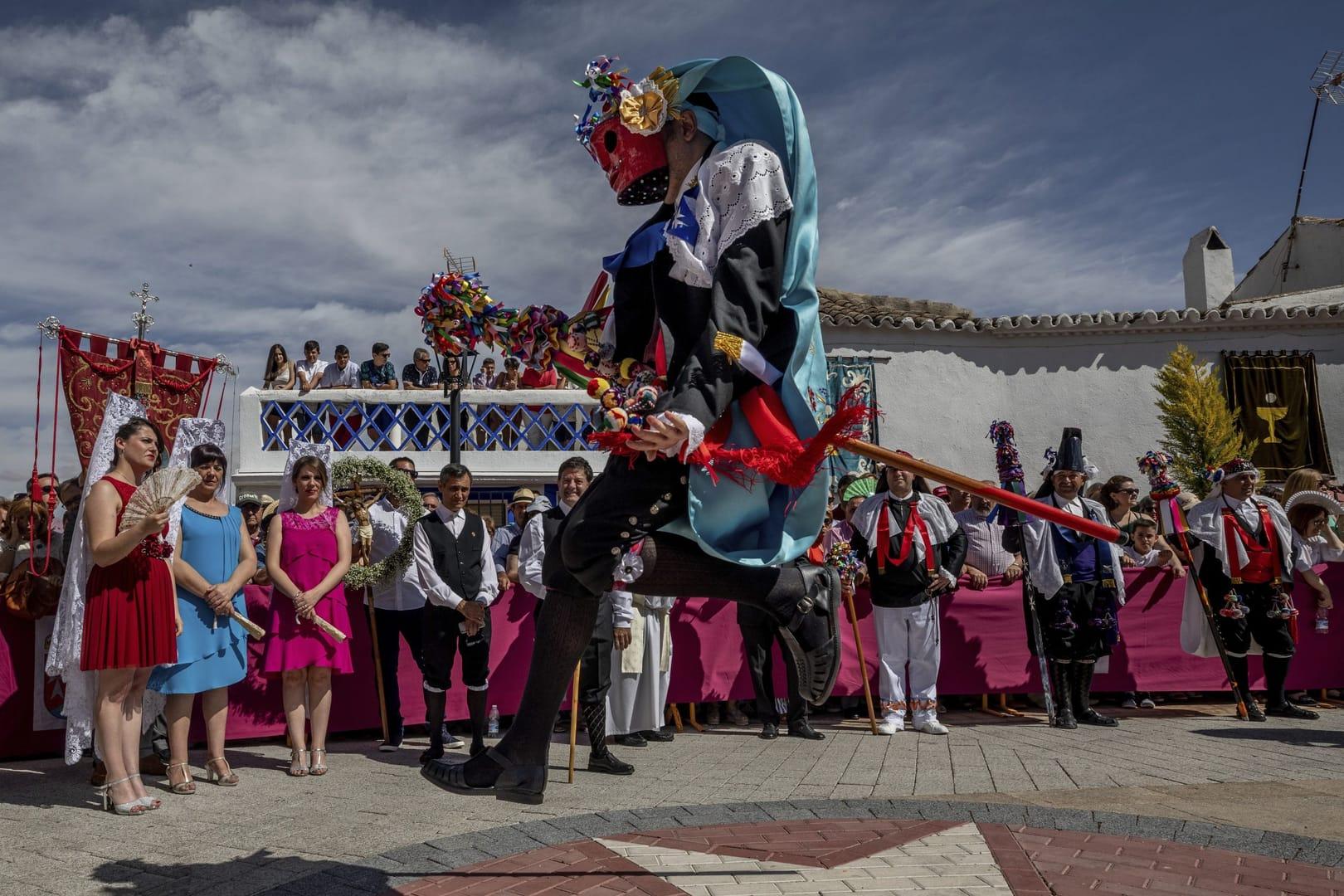CAMUÑAS, Spain — It is time for the Corpus Christi celebrations in Spain, and the central town of Camuñas smells of rosemary.
Each year, members of the local Catholic brotherhood dedicated to the town’s unique celebration of the Eucharist called “Pecados y danzantes” (“Sins and Dancers”) take over the streets in colorful, homemade costumes and masks that heighten the anarchic carnival atmosphere.
The origins of the festivities in Camuñas are murky but they began sometime in the Middle Ages. The ritual is enjoying a renaissance after being banned from 1947 to 1962 under the dictatorship of Gen. Francisco Franco, which considered them pagan and disrespectful of the Church.
The first day’s procession is to glorify the power of redemption, and unites the two bands the brotherhood has divided into: the “dancers” and the “sinners.”
They both join in leading a small statue of Christ to the church where Mass is held. The “sinners” run and kneel before Christ to beg for their sins to be redeemed.
But on the following day, the “sinners” return and this time march alone, drinking, making lewd jokes, and playing harmless pranks on each other. The hay cart carrying a brother who dons a bishop’s miter is momentarily set aflame, while another is tied to a tree and a third has his legs tapped together. Eggs are tossed. Bystanders — some most likely bemused — are sprayed with water.
The culmination of the “sinners”-only procession is the symbolic “hanging” of four of them atop a gallows. In a mock public trial, the four “wrongdoers” are given the chance to ask for forgiveness, but they refuse and get the noose in a parody of an execution by the Spanish Inquisition.
And through it all, there is the pleasant fragrance of rosemary that the villagers scatter along the route.
Joseph Wilson in Barcelona, Spain, contributed.
Crux is dedicated to smart, wired and independent reporting on the Vatican and worldwide Catholic Church. That kind of reporting doesn’t come cheap, and we need your support. You can help Crux by giving a small amount monthly, or with a onetime gift. Please remember, Crux is a for-profit organization, so contributions are not tax-deductible.
















